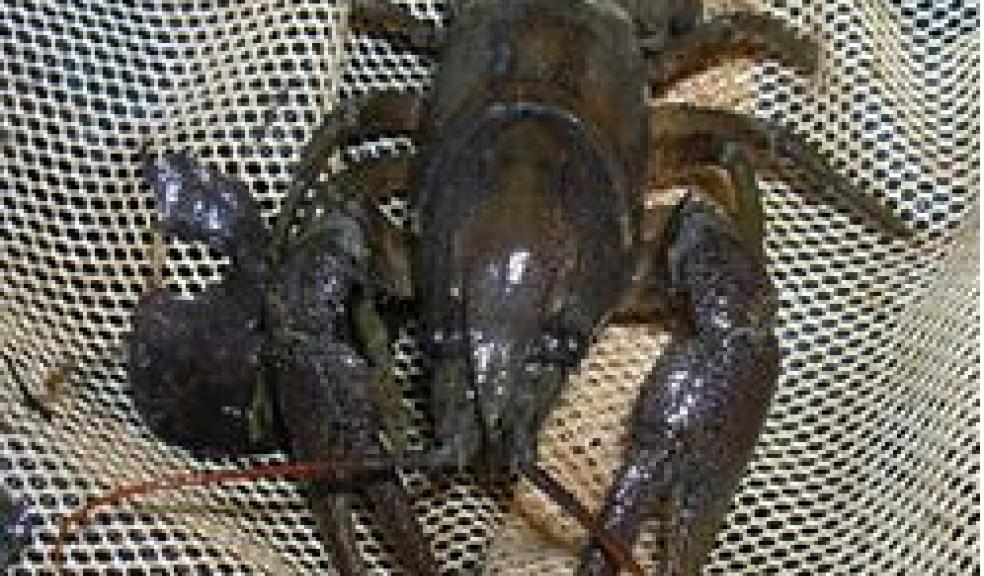
South West celebrates success in conserving endangered crayfish
The South West Crayfish project an organisation which is working to protect native white-clawed crayfish through field conservation work, captive breeding and education, are celebrating after moving over 4,000 endangered White-clawed crayfish to safe haven ‘Ark sites'.
The South West Crayfish Project is led by Buglife, Avon Wildlife Trust, Bristol Zoo Gardens and the Environment Agency.
The White-clawed crayfish is the UK's only native crayfish and is under threat of extinction in south west England in particular due to the spread of the non-native American signal crayfish. The Project was launched in 2008 in response to the threat of extinction for the White-clawed crayfish in the region.
The project has been a huge sucess since its launch just five years ago. They have:
- Moved more than 4,000 White-clawed crayfish from threatened populations to 14 new safe-haven Ark sites
- Surveyed our remaining wild crayfish populations and assessed the threats to them
- Bred over 1,300 White-clawed crayfish at an innovative captive breeding programme at Bristol Zoo
- Taught over 1,600 school children about the White-clawed crayfish and the wildlife in their local rivers.
- Monitored the spread of North American Signal crayfish on many of our rivers
However, despite this action the species still remains under considerable threat, and therefore a new five year strategy has been developed in order to continue the work into the future. Andrew Whitehouse, South West Manager for Buglife said:
"The South West Crayfish Project has ensured that the region's White-clawed crayfish have a brighter future, and is a great example of how a large number of organisations can work together to save some of our most threatened species. We look forward to the next phase of the project and to checking on our crayfish next year to see how they are getting on in their new Ark site homes."
Lydia Robbins, Species Officer at Avon Wildlife Trust, said:
"We hope that by moving animals to Ark sites we have prevented highly threatened populations from going extinct due to the spread of the non-native American Signal crayfish. We must remain vigilant to continued threats and keep up surveillance of all populations."
Jen Nightingale, UK Conservation Manager at Bristol Zoo Gardens, said:
"Our captive breeding hatchery at Bristol Zoo Gardens is achieving great results rearing and breeding white-clawed crayfish for wild supplementations, research and display. Through our outreach campaigns, we have targeted fisheries, divers, restaurants, school children and students in our quest to educate the public as to the threats facing this endangered species and how we can all help conserve the UK's only freshwater crayfish."
Mary-Rose Lane, Biodiversity Specialist for the Environment Agency said: "What we have achieved is a great start, and we now need to continue working together to protect our native crayfish populations, and understand and tackle the damage Signal crayfish can cause the native wildlife of our rivers and streams."
The South West Crayfish Project has been supported by funding from BBC Wildlife Fund, Biffa Award, Bristol Water, Defra's Aggregates Levy Sustainability Fund, Environment Agency, Heritage Lottery Fund, Natural England, and the Pennon Environmental Trust.
For more information on The South West Crayfish Project and the work that they do, please visit http://www.buglife.org.uk/campaigns-and-our-work/south-west-crayfish-partnership











